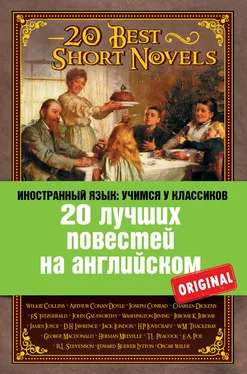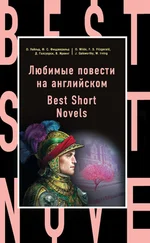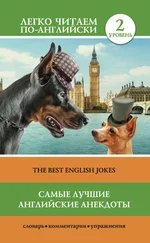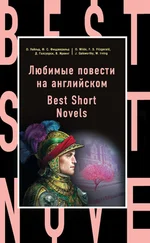Scythrop, attending one day the summons to dinner, found in the drawing-room his friend Mr. Cypress the poet, whom he had known at college, and who was a great favourite of Mr. Glowry. Mr. Cypress said, he was on the point of leaving England, but could not think of doing so without a farewell-look at Nightmare Abbey and his respected friends, the moody Mr. Glowry and the mysterious Mr. Scythrop, the sublime Mr. Flosky and the pathetic Mr. Listless; to all of whom, and the morbid hospitality of the melancholy dwelling in which they were then assembled, he assured them he should always look back with as much affection as his lacerated spirit could feel for any thing. The sympathetic condolence of their respective replies was cut short by Raven’s announcement of ‘dinner on table.’
The conversation that took place when the wine was in circulation, and the ladies were withdrawn, we shall report with our usual scrupulous fidelity.
MR. GLOWRY
You are leaving England, Mr. Cypress. There is a delightful melancholy in saying farewell to an old acquaintance, when the chances are twenty to one against ever meeting again. A smiling bumper to a sad parting, and let us all be unhappy together.
MR. CYPRESS ( filling a bumper )
This is the only social habit that the disappointed spirit never unlearns.
THE REVEREND MR. LARYNX ( filling )
It is the only piece of academical learning that the finished educatee retains.
MR. FLOSKY ( filling )
It is the only objective fact which the sceptic can realise.
SCYTHROP ( filling )
It is the only styptic for a bleeding heart.
THE HONOURABLE MR. LISTLESS ( filling )
It is the only trouble that is very well worth taking.
MR. ASTERIAS ( filling )
It is the only key of conversational truth.
MR. TOOBAD ( filling )
It is the only antidote to the great wrath of the devil.
MR. HILARY ( filling )
It is the only symbol of perfect life. The inscription ‘HIC NON BIBITUR’ [639]will suit nothing but a tombstone.
MR. GLOWRY
You will see many fine old ruins, Mr. Cypress; crumbling pillars, and mossy walls – many a one-legged Venus and headless Minerva [640] – many a Neptune [641]buried in sand – many a Jupiter turned topsy-turvy – many a perforated Bacchus [642]doing duty as a water-pipe – many reminiscences of the ancient world, which I hope was better worth living in than the modern; though, for myself, I care not a straw more for one than the other, and would not go twenty miles to see any thing that either could show.
MR. CYPRESS
It is something to seek, Mr. Glowry. The mind is restless, and must persist in seeking, though to find is to be disappointed. Do you feel no aspirations towards the countries of Socrates [643]and Cicero? No wish to wander among the venerable remains of the greatness that has passed for ever?
MR. GLOWRY
Not a grain.
SCYTHROP
It is, indeed, much the same as if a lover should dig up the buried form of his mistress, and gaze upon relics which are any thing but herself, to wander among a few mouldy ruins, that are only imperfect indexes to lost volumes of glory, and meet at every step the more melancholy ruins of human nature – a degenerate race of stupid and shrivelled slaves, grovelling in the lowest depths of servility and superstition.
THE HONOURABLE MR. LISTLESS
It is the fashion to go abroad. I have thought of it myself, but am hardly equal to the exertion. To be sure, a little eccentricity and originality are allowable in some cases; and the most eccentric and original of all characters is an Englishman who stays at home.
SCYTHROP
I should have no pleasure in visiting countries that are past all hope of regeneration. There is great hope of our own; and it seems to me that an Englishman, who, either by his station in society, or by his genius, or (as in your instance, Mr. Cypress,) by both, has the power of essentially serving his country in its arduous struggle with its domestic enemies, yet forsakes his country, which is still so rich in hope, to dwell in others which are only fertile in the ruins of memory, does what none of those ancients, whose fragmentary memorials you venerate, would have done in similar circumstances.
MR. CYPRESS
Sir, I have quarrelled with my wife; and a man who has quarrelled with his wife is absolved from all duty to his country. I have written an ode to tell the people as much, and they may take it as they list.
SCYTHROP
Do you suppose, if Brutus [644]had quarrelled with his wife, he would have given it as a reason to Cassius [645]for having nothing to do with his enterprise? Or would Cassius have been satisfied with such an excuse?
MR. FLOSKY
Brutus was a senator; so is our dear friend: but the cases are different. Brutus had some hope of political good: Mr. Cypress has none. How should he, after what we have seen in France?
SCYTHROP
A Frenchman is born in harness, ready saddled, bitted, and bridled, for any tyrant to ride. He will fawn under his rider one moment, and throw him and kick him to death the next; but another adventurer springs on his back, and by dint of whip and spur on he goes as before. We may, without much vanity, hope better of ourselves.
MR. CYPRESS
I have no hope for myself or for others. Our life is a false nature; it is not in the harmony of things; it is an all-blasting upas, whose root is earth, and whose leaves are the skies which rain their poison-dews upon mankind. We wither from our youth; we gasp with unslaked thirst for unattainable good; lured from the first to the last by phantoms – love, fame, ambition, avarice–all idle, and all ill – one meteor of many names, that vanishes in the smoke of death.
MR. FLOSKY
A most delightful speech, Mr. Cypress. A most amiable and instructive philosophy. You have only to impress its truth on the minds of all living men, and life will then, indeed, be the desert and the solitude; and I must do you, myself, and our mutual friends, the justice to observe, that let society only give fair play at one and the same time, as I flatter myself it is inclined to do, to your system of morals, and my system of metaphysics, and Scythrop’s system of politics, and Mr. Listless’s system of manners, and Mr. Toobad’s system of religion, and the result will be as fine a mental chaos as even the immortal Kant himself could ever have hoped to see; in the prospect of which I rejoice.
MR. HILARY
‘Certainly, ancient, it is not a thing to rejoice at:’ I am one of those who cannot see the good that is to result from all this mystifying and blue-devilling of society. The contrast it presents to the cheerful and solid wisdom of antiquity is too forcible not to strike any one who has the least knowledge of classical literature. To represent vice and misery as the necessary accompaniments of genius, is as mischievous as it is false, and the feeling is as unclassical as the language in which it is usually expressed.
MR. TOOBAD
It is our calamity. The devil has come among us, and has begun by taking possession of all the cleverest fellows. Yet, forsooth, this is the enlightened age. Marry, how? Did our ancestors go peeping about with dark lanterns, and do we walk at our ease in broad sunshine? Where is the manifestation of our light? By what symptoms do you recognise it? What are its signs, its tokens, its symptoms, its symbols, its categories, its conditions? What is it, and why? How, where, when is it to be seen, felt, and understood? What do we see by it which our ancestors saw not, and which at the same time is worth seeing? We see a hundred men hanged, where they saw one. We see five hundred transported, where they saw one. We see five thousand in the workhouse, when they saw one. We see scores of Bible Societies, where they saw none. We see paper, where they saw gold. We see men in stays, where they saw men in armour. We see painted faces, where they saw healthy ones. We see children perishing in manufactories, where they saw them flourishing in the fields. We see prisons, where they saw castles. We see masters, where they saw representatives. In short, they saw true men, where we see false knaves. They saw Milton [646], and we see Mr. Sackbut.
Читать дальше
Конец ознакомительного отрывка
Купить книгу












